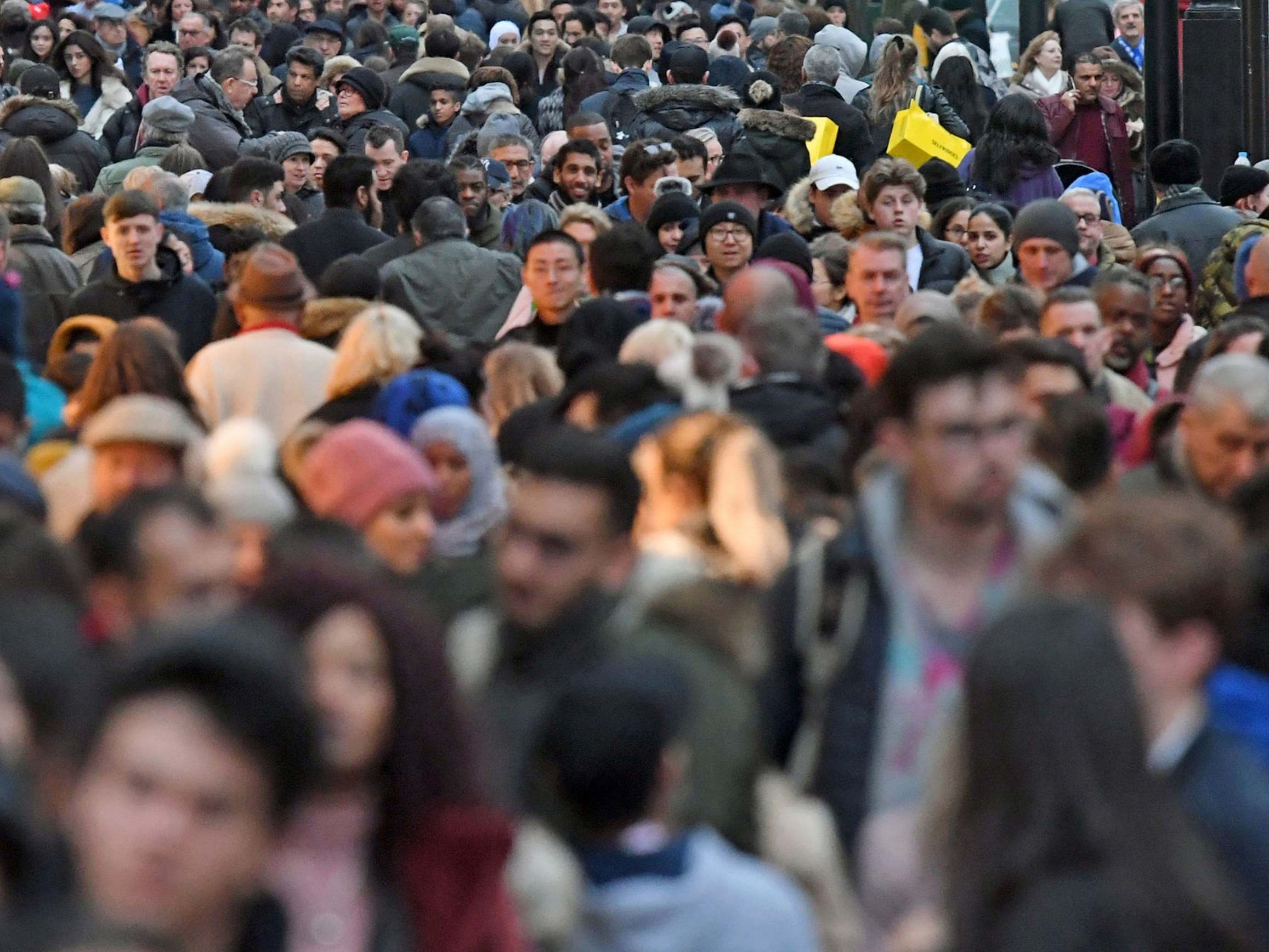UK population rises to 66.4m despite highest number of deaths for 18 years
Number of births falls by 2 per cent year-on-year to lowest level since 2006

Your support helps us to tell the story
From reproductive rights to climate change to Big Tech, The Independent is on the ground when the story is developing. Whether it's investigating the financials of Elon Musk's pro-Trump PAC or producing our latest documentary, 'The A Word', which shines a light on the American women fighting for reproductive rights, we know how important it is to parse out the facts from the messaging.
At such a critical moment in US history, we need reporters on the ground. Your donation allows us to keep sending journalists to speak to both sides of the story.
The Independent is trusted by Americans across the entire political spectrum. And unlike many other quality news outlets, we choose not to lock Americans out of our reporting and analysis with paywalls. We believe quality journalism should be available to everyone, paid for by those who can afford it.
Your support makes all the difference.The population of the UK has risen to 66.4 million but the growth rate has stalled, official estimates show.
The latest calculations have revealed there were an estimated 66,436,000 people living in the country at the end of June last year, according to data from the Office for National Statistics (ONS).
However, the growth rate remained the same as the previous year.
Over the 12 months to the middle of 2018, the UK population rose year-on-year by 0.6 per cent.
Neil Park, head of the ONS population estimates unit, said: “For the fifth year in a row, net international migration was a bigger driver of population change than births and deaths.
He added: “However, overall population change to the year mid-2018 has remained fairly stable as an increase in net international migration has been roughly matched by the fewest births in over a decade and the highest number of deaths since the turn of the century.”
The figures also show the number of births in the year to mid-2018 was 744,000 – the fewest in any year since 2006, and down 2 per cent on the previous 12 months.
By contrast, the number of deaths rose 3 per cent to 623,000 – the most since the year 2000.
It means natural change in the UK population – the number of births minus the number of deaths – is now at its lowest level since 2004.
Net international migration in the year to mid-2018 was 275,000, which was “broadly in line” with the average of the past five years, the ONS said.
The four local authorities with the fastest-growing populations are all in central London.
The “relatively high level” of population growth in the City of London, Westminster, Camden and Tower Hamlets is “partly a reflection of the increase in net international migration” between mid-2017 and mid-2018, the ONS added.
Robin Maynard, of the charity Population Matters, said: “These figures give no grounds for complacency about UK population growth.
“Birth rates and migration fluctuate from year to year but our already unsustainable population is continuing to rise and that will continue until a positive strategy is put in place to address it.”
He added: “The government has announced ambitious plans to achieve a zero-carbon economy but by ignoring our unsustainable population growth, it is driving with the brakes on.
“More people means more emitters and more emissions.
“Our growing numbers are incompatible with our climate change commitments, the health of our environment and our quality of life.”
Laura Gardiner, research director at the Resolution Foundation think tank, which aims to improve the standard of living, said: “The UK population is ageing particularly fast at the moment because rising life expectancy is being amplified by the large baby boomer generation moving from working age into retirement.
“But the rates of change vary greatly across the country.
“The large share of pensioners across some coastal parts of the country stands in stark contrast to far younger populations in Britain’s major cities.
“This has huge implications for public service provision across the UK, and how those services are funded.”
Press Association
Join our commenting forum
Join thought-provoking conversations, follow other Independent readers and see their replies
0Comments